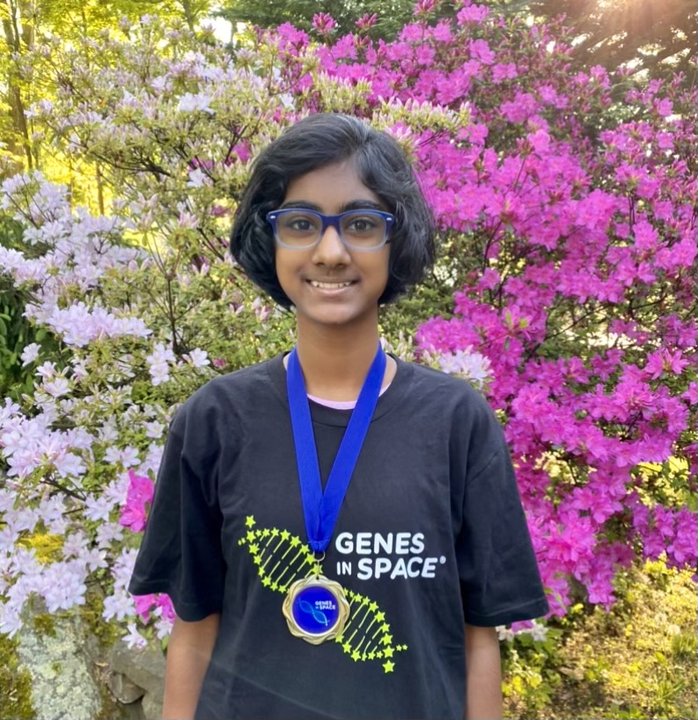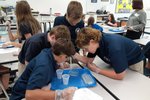GiS Spotlight: Junior Scientist awardee Priyanka Talla
Each year, we honor 5 outstanding submissions from 7th and 8th graders with Junior Scientist Awards. Of the 602 submissions we received this year, more than 250 were contributed by middle schoolers, so the competition was stiff!
Today, we shine the GiS Spotlight on one JSA winner: Priyanka Talla (13) from Robert E. Bell Middle School in Chappaqua, NY, who wanted to explore the basis of mitochondrial dysfunction in astronauts .

What was the focus of your experiment? Mitochondrial dysfunction is a condition in which mitochondria fail to provide enough power for a cell to function. My experiment hopes to determine if mitochondrial dysfunction is caused in space due to incorrect PINK1 gene expression.
Why did you choose to participate in Genes in Space? I chose to participate in Genes in Space because it was exciting that my proposal had the possibility of being conducted in space on the ISS. I was also enthusiastic that my experiment could improve the lives of astronauts in space one day.
How did you choose your topic? I wanted to address an issue that could be a big roadblock for astronauts in the future. I looked for a problem by reading many scientific articles online. Through my research on the possible impacts of harsh space conditions on astronauts, I came across information about changes in mitochondrial function. I thought that it was very important, so I chose it as my topic.
What did you gain by participating in Genes in Space? By participating in Genes in Space, I learned a lot about developments in space and tools such as the miniPCR and the P51 Fluorescence Viewer.
Do you have any advice for future Genes in Space contestants? Genes in Space is a learning experience as well as a contest- there are many resources on the GiS and miniPCR websites that teach a wide variety of topics. My advice is to use these resources as much as possible, because they are very helpful. I would also suggest writing down your ideas and thought processes so that you can come back to them later even if they don’t seem right at first.


